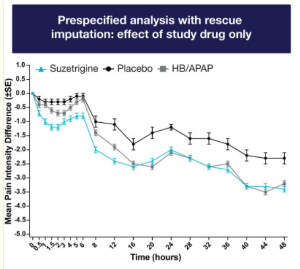October 2025
A Note on the Intersection of Politics and Medicine
The mixing of politics and medicine isn't a new phenomenon, but the extent and speed of it is new for me. I'm well past the point of surprise, and I'll continue weighing in as new and potentially confusing recommendations emerge.
On Vaccines:
I continue to recommend the current 2025-26 COVID and flu vaccines for the general population, particularly for individuals with compromised immune, nervous, lung, kidney, or cardiac systems, as the protection they provide against severe disease remains crucial. Some pharmacies now require a prescription. Happy to provide them. Please let me know. The image above shows me receiving this year's COVID vaccine, followed immediately by the flu shot :D. Additionally, I recommend the Pneumonia vaccine (PCV 20 or Prevnar 20) for folks 65 or older or anyone with lung or heart issues, Shingrix the shingles vaccine for those 50 and older or younger individuals with compromised immune systems, RSV vaccines for those with specific immunodeficiencies or adults 75 and older, and Tetanus, Diphtheria, and Pertussis (Tdap) boosters every decade.
On Autism and Tylenol:
It has been a challenging month and year for Autistic individuals. The prevailing message suggests that Autism and Autistic people are inherently flawed and need fixing, while simultaneously placing blame on pregnant people in pain who take acetaminophen as the cause revolts me. All the while, without solid scientific evidence to support these claims. These narratives are deeply troubling. Hang in there.
Have high blood pressure? Want lower risk of dementia?
A recent study involving 34,000 individuals with high blood pressure in rural China compared two treatment approaches: one group targeted stricter blood pressure goals below 130/80 mmHg (systolic pressure during heart contraction and diastolic pressure during heart relaxation), while the other followed standard physician recommendations of below 140/90 mmHg. After two years, 4.6% of patients in the stricter control group developed dementia compared to 5.4% in the standard control group, representing a 15% relative risk reduction.
Dr. Neuman says, "I'm unsure whether results from a study in rural China directly apply to people here, but it's certainly better than having no data to guide our decisions on target numbers. While 1% may not seem significant, this study only ran for two years. If people maintain lower targets for longer periods, the effect size could potentially increase. Even so, a 1% difference is still quite worthwhile for many individuals to pursue."
Can a nasal spray really reduce COVID infections?
A new study from Germany suggests it can. Researchers found that participants using azelastine 0.1% nasal spray, applied once in each nostril twice daily for 56 days, experienced significantly fewer infections. Only 5 people in the azelastine group contracted COVID compared to 16 in the placebo group, representing a 70% relative risk reduction. The study also demonstrated a 78% reduction in rhinovirus infections, another common cold culprit, with just 1.8% of azelastine users becoming infected versus 6.3% of those receiving placebo.
Dr. Neuman says, "This was a small study with relatively few infections, and it focused on a German population, so we'll need to see how well these results translate. That said, the effect sizes are impressive, so I'd expect larger studies to confirm these findings. For now, I'm comfortable recommending azelastine nasal spray to people at high risk for COVID and cold complications who want to reduce their chances of getting sick. It's now available over-the-counter as Astepro, which makes it especially convenient as we head into winter."
Suzetrigine - the first in a new class of pain meds
Excellent news! Suzetrigine (Journavx), the first medication in a new class of non-opioid pain relievers, has successfully demonstrated equal effectiveness to current treatment strategies for acute postoperative pain. This innovative drug works by blocking pain signals at the nerve level before they can reach the brain, and it received FDA approval this past January. The graph above illustrates that suzetrigine performs comparably to opioid medications, specifically hydrocodone bitartrate/acetaminophen (Norco), shown in the grey line, with both treatments significantly outperforming placebo. In studies involving patients recovering from abdominal and bunion surgeries, suzetrigine provided pain relief equivalent to Norco while reducing nausea by 10%. Notably, no serious adverse events related to either medication were reported during the study.
Dr. Neuman says, "High cost remains a hurdle: $506 for a 30-day supply. However, there are manufacturer coupons that could bring down that cost to $30 per 30-day supply, if eligible."
Clopidogrel outcompetes aspirin after heart attack with stenting
Following a heart attack where a stent has been placed, patients typically receive platelet-blocking medications to prevent stent blockage from clots and reduce the risk of recurrent heart attacks. This approach is similar for strokes with stenting. Standard practice involves prescribing both clopidogrel (Plavix) and aspirin for a short period after stent placement, usually three months. Previously, we would discontinue clopidogrel after three months while continuing aspirin indefinitely. A new study challenges this approach.
Researchers followed 5,542 patients who had experienced heart attacks with stenting and found that those who continued clopidogrel had a 38% lower risk of death compared to the aspirin-only group – 2.4% versus 4.0%. The clopidogrel group also experienced fewer recurrent heart attacks, with rates of 1.0% compared to 2.2% for aspirin alone. Importantly, there were no differences in stroke risk, bleeding complications, or other serious adverse effects between the groups.
Dr. Neuman says, "Some studies have shown a higher risk of bleeding with aspirin, and others with clopidogrel. With this new data, I will be asking folks who have had a heart attack with stenting (aka PCI) to discuss with their cardiologist about which choice makes sense for them."






